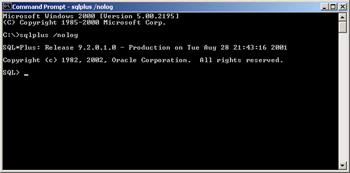

- Md5 encoding in sql how to#
- Md5 encoding in sql full#
- Md5 encoding in sql verification#
- Md5 encoding in sql code#
- Md5 encoding in sql free#
Md5 encoding in sql how to#
How to identify a MD5 crypt hash string?Īn md5-crypt hash string has the format $1$ salt $ checksum, where: $1$ is the prefix used to identify md5-crypt hashes, following the Modular Crypt Format salt is 0-8 characters drawn from the regexp range providing a 48-bit salt ( 5pZSV9va in the example).

The md5 hash function encodes it and then using digest (), byte equivalent encoded string is printed.
Md5 encoding in sql code#
Explanation : The above code takes byte and can be accepted by the hash function.

The below code demonstrates the working of MD5 hash accepting bytes and output as bytes. From RFC 1321 - The MD5 Message-Digest Algorithm: 'The MD5 message-digest algorithm takes as input a message of arbitrary length and produces as output a 128-bit 'fingerprint' or 'message digest' of the input. The md5 () function uses the RSA Data Security, Inc. Below is the magic that worked for me to give a perfect match between SQL Server and MySql How does MD5 hash accept bytes and output as bytes? The md5 () function calculates the MD5 hash of a string. Note that SQL Server will give different results if you pass in a hard-coded string versus feed it from a column in your result set. If you're using the DLL on such a system, I would recompile it without that linker option.None of the other answers worked for me. This may cause a performance hit on non-NT systems (e.g., Win95, Win98, etc.). The hashing functions return a fixed-length value that is the result of applying a hash algorithm to an input argument.

One last thing, I added the linker option /OPT:NOWIN98 to minimize the binary size. If you want to make it more robust - like if you do not know what kind of data will be passed to the function - then I highly recommend you add those safeguards. I also know that I'm always calling the procedure properly. I opted to exclude that in order to maximize speed, as I originally wrote this for use in an application that inserts millions of rows at a time.
Md5 encoding in sql verification#
FOR SQL_VARIANT: SELECT dbo.fn_md5x(CAST(data AS VARCHAR( 8000)), DATALENGTH(data)) FROM table Miscellaneousįor purposes of speed, I did not include any real input data verification (e.g., type checking, data length checking, etc.). For BINARY: SELECT dbo.fn_md5x(data, 12) FROM table For NCHAR: (we can use LEN() on this fixed-width type to trim the padding) SELECT dbo.fn_md5x(CAST(data AS CHAR( 4000)), LEN(data)) FROM table Please help me to understand what the MD5 function above is returning. For CHAR: (we can use LEN() on this fixed-width type to trim the padding) SELECT dbo.fn_md5x(data, LEN(data)) FROM table When I run the word 'test' through the MD5 function in C, it returns the following: RTYSPVSIIGNYx5++zd8EfNwYAONmPWZnsKaYiQHBCP8 This is not standard Base64 encoding, and I cannot figure out a way to recreate it in SQL for an associated project. For IMAGE: SELECT dbo.fn_md5x(data, DEFAULT) FROM table For VARBINARY: SELECT dbo.fn_md5(CAST(data AS VARCHAR( 8000))) FROM table For TEXT, NTEXT, VARCHAR: SELECT dbo.fn_md5(data) FROM table Use CAST() with caution, as it may truncate and have other unintended consequences. For SQL Server 2014 (12.x) and earlier, allowed input values are limited to 8000 bytes.
Md5 encoding in sql free#
Feel free to create your own functions that take the input type you want. The output conforms to the algorithm standard: 128 bits (16 bytes) for MD2, MD4, and MD5 160 bits (20 bytes) for SHA and SHA1 256 bits (32 bytes) for SHA2256, and 512 bits (64 bytes) for SHA2512. These are just examples for use with the given functions above.
Md5 encoding in sql full#
Enter xp_md5 for the "Name" and for the "Path", enter the full path to xp_md5.dll. Return values have data type CHAR(32) and. Right-click "Extended Stored Procedures" under the master database in the Server Manager and click "New Extended Stored Procedure.". This function computes a hash value by using the MD5 algorithm (128 Bit). Create an Extended Stored Procedure called xp_md5 in the "master" database.A precompiled DLL is in the Release directory of the source distribution. Extract or build the DLL file xp_md5.dll and place it in C:\Program Files\Microsoft SQL Server\MSSQL\Binn (or wherever appropriate).The source was compiled and tested on Microsoft Visual C++ 6.0 and. The DLL should work for older versions of SQL Server too, although I have not tested that. It is intended to work much like the MySQL MD5() function. This is an extended stored procedure for Microsoft SQL Server 2000 that implements an optimized MD5 hash algorithm.


 0 kommentar(er)
0 kommentar(er)
